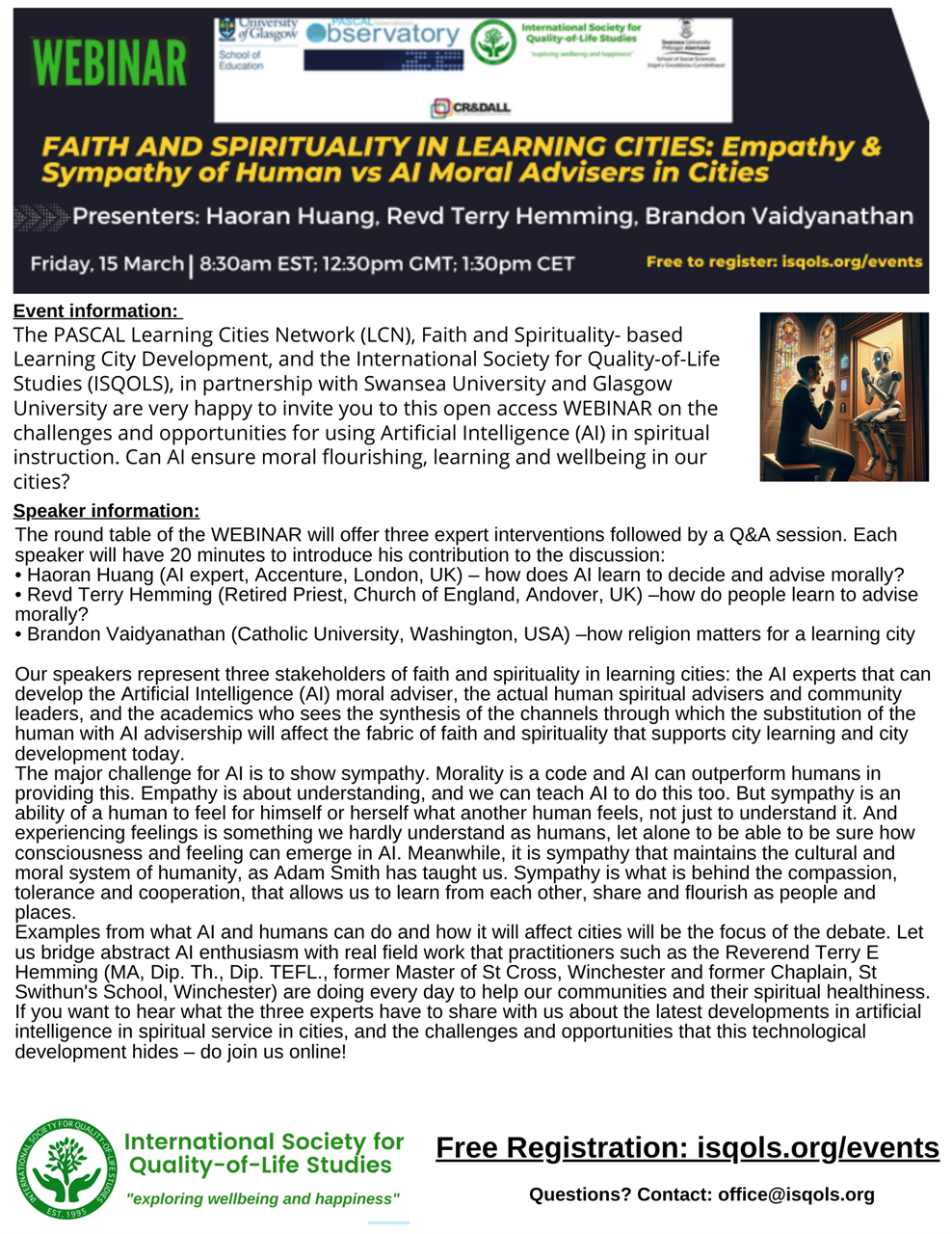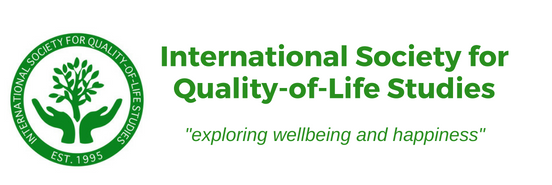Webinar co-hosted by: The PASCAL Learning Cities Network (LCN), Faith and Spirituality- based Learning City Development, and the International Society for Quality-of-Life Studies (ISQOLS), in partnership with Swansea University and Glasgow University
" FAITH AND SPIRITUALITY IN LEARNING CITIES:
Empathy & Sympathy of Human vs AI Moral Advisers in Cities"
15th March 2024
8:30am EST; 12:30pm GMT; 1:30pm CET
The PASCAL Learning Cities Network (LCN), Faith and Spirituality- based Learning City Development, and the International Society for Quality-of-Life Studies (ISQOLS), in partnership with Swansea University and Glasgow University are very happy to invite you to this open access WEBINAR on the challenges and opportunities for using Artificial Intelligence (AI) in spiritual instruction. Can AI ensure moral flourishing, learning and wellbeing in our cities?
The round table of the WEBINAR will offer three expert interventions followed by a Q&A session. Each speaker will have 20 minutes to introduce his contribution to the discussion:
• Haoran Huang (AI expert, Accenture, London, UK) – how does AI learn to decide and advise morally?
• Revd Terry Hemming (Retired Priest, Church of England, Andover, UK) – how do people learn to advise morally?
• Brandon Vaidyanathan (Catholic University, Washington, USA) – how religion matters for a learning city
Our speakers represent three stakeholders of faith and spirituality in learning cities: the AI experts that can develop the Artificial Intelligence (AI) moral adviser, the actual human spiritual advisers and community leaders, and the academics who sees the synthesis of the channels through which the substitution of the human with AI advisership will affect the fabric of faith and spirituality that supports city learning and city development today.
The major challenge for AI is to show sympathy. Morality is a code and AI can outperform humans in providing this. Empathy is about understanding, and we can teach AI to do this too. But sympathy is an ability of a human to feel for himself or herself what another human feels, not just to understand it. And experiencing feelings is something we hardly understand as humans, let alone to be able to be sure how consciousness and feeling can emerge in AI. Meanwhile, it is sympathy that maintains the cultural and moral system of humanity, as Adam Smith has taught us. Sympathy is what is behind the compassion, tolerance and cooperation, that allows us to learn from each other, share and flourish as people and places.
Examples from what AI and humans can do and how it will affect cities will be the focus of the debate. Let us bridge abstract AI enthusiasm with real field work that practitioners such as the Reverend Terry E Hemming (MA, Dip. Th., Dip. TEFL., former Master of St Cross, Winchester and former Chaplain, St Swithun's School, Winchester) are doing every day to help our communities and their spiritual healthiness.
If you want to hear what the three experts have to share with us about the latest developments in artificial intelligence in spiritual service in cities, and the challenges and opportunities that this technological development hides – do join us online!

